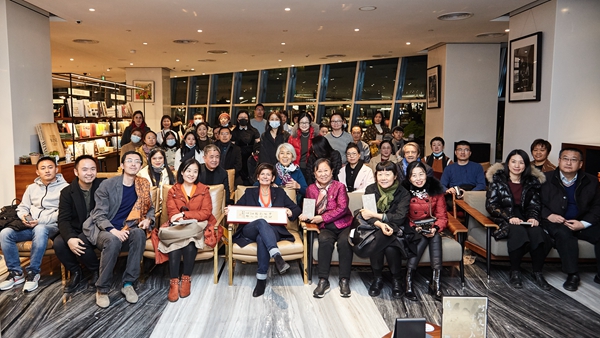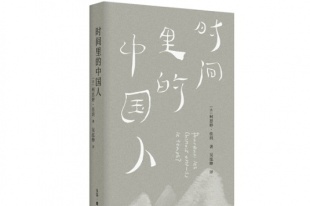Time for a new look at time, author says


"But the French are different," Cayol says. "We tend to miss the opportunity because with strict schedules, temporary changes are more like interruptions than chances. We don't like to break rules or observe while walking, and always want to see the results at the beginning."
It took the author two years working on this book since 2015. Published in France in 2017, Pourquoi les Chinois ont-ils le Temps showed French people a fresh way to turn the clock into an ally by drawing inspiration from the Chinese agility of time.
"Christine Cayol shows us a tranquil way to deal with time. Her book just reveals exactly the different perceptions of time that I've experienced in France. I can understand it better now." Having studied in France for about five years, He Xinjie, 30, one of those attending the event said.
"I'm not offering recipes or remedies, but rather advice and attitude to help us become more flexible with time and dance with time," Cayol says. She believes that adopting a perception of time is just like adopting a foreign language because people don't learn languages to judge which one is better, but to communicate with each other.
In 2009, Cayol set up Yishu 8 with Xue Yunda as a platform for exchanges between Chinese and French culture. It's during this process when she started to realize that Chinese people have a different view of time.
Yishu 8 is a Sino-French Art center based in Beijing, where Chinese and French artists can develop and demonstrate their talents. "Yishu 8 is a house in which Chinese and French cultures get married," Cayol says. She believes that what people need is not just a dialogue between the two cultures, but the marriage of them, with the prerequisite that both sides loving each other.
"Marriage makes family, and in a family, there should be children," she says. Prize Yishu 8 was set just for these children-young artists from both China and France since 2013. Chinese winners have the opportunity to spend two months living and creating their work in Paris, and French winners the same in Beijing.
"Many Chinese young artists have impressed me a lot, like Chen Duxi, Peng Yong and Li Xin, their work are extraordinary," says Cayol. She also invited Chen Duxi to do the illustration in Pourquoi les Chinois ont-ils le Temps, whose work combines traditional and contemporary Chinese art styles.
It's also in Yishu 8 that Cayol met Wu Jianmin, former ambassador of China to France, and his wife Shi Yanhua in 2012. They then became very close friends and often shared their ideas of cross-culture communication between China and France. Cayol thinks that fear and ignorance are the two enemies of communication and people should try to read more, reflect more and understand more in order to avoid turning inward.
"Ambassador Wu Jianmin told me to continue to make efforts for Sino-French relations. He said that we should be artisans of communication-stay modest and work hard," Cayol says. The book was her trying to build a bridge between Chinese and French culture.
Cayol's book makes people understand the different ways Chinese and Western people deal with time, and is for all those whose obsession with time has become a disease. People have to know how to vary between different kinds of time to cure. Those who are slaves to speedy time have to learn to slow down while those who only feel comfortable going slow should learn to accelerate.
"As a French person living in China for almost two decades, Cayol has a very interesting point of view. I hope after reading her book, people can balance their work and spare time better, and make friends with time," says former ambassador Shi.
Now Cayol is enjoying and benefiting from the Chinese lifestyle and perception of time. As a mother of two 16-year-old boys, she finds it interesting to see a combination of Chinese and French cultures in her children. "I think they prefer living with the Chinese view of time too because it's efficient and flexible, and they can have their hair cut on Sunday evenings."





































